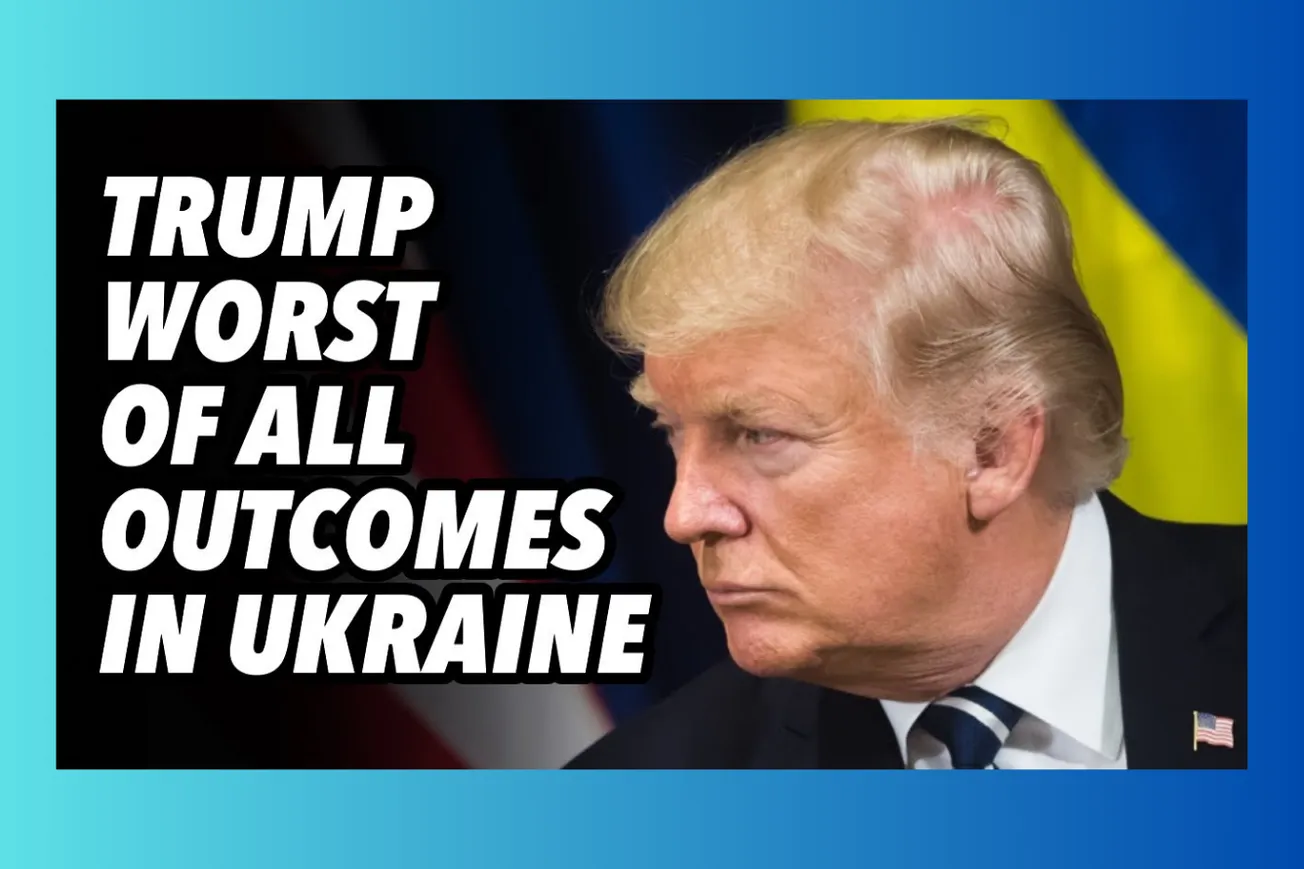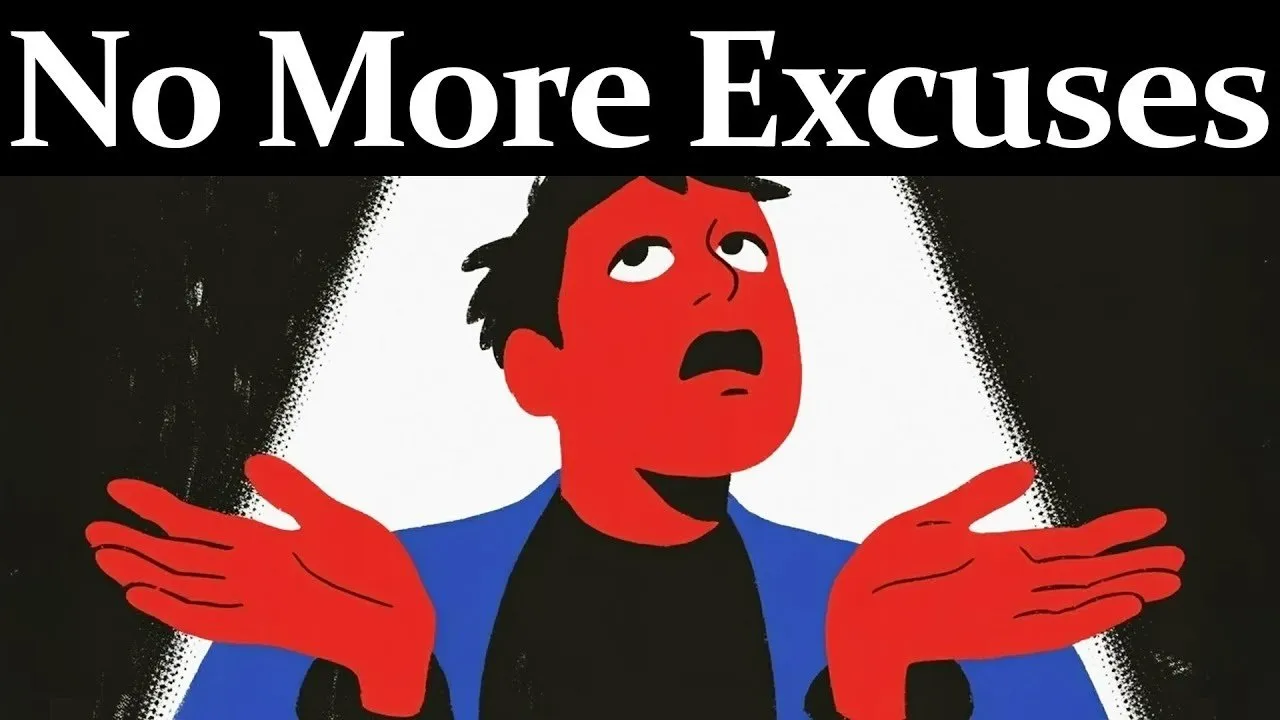Table of Contents
The Trump administration finds itself trapped in what analysts call the "worst of all outcomes" regarding Ukraine—unable to broker meaningful negotiations while continuing costly weapons deliveries to a deteriorating military situation.
Key Takeaways
- Istanbul negotiations revealed Russia's unwavering confidence, with Medinsky completely dominating diplomatic discussions and rejecting any compromise on core demands
- Western military stockpiles have reached a critical exhaustion point after three years of conflict, forcing reliance on outdated systems like 1950s-era Hawk missiles
- Trump's approach lacks strategic coherence—neither fully committing to Ukraine's defense nor cleanly walking away from Biden's policies
- Russia remains unmoved by tariff threats and secondary sanctions, demonstrating the limits of Trump's economic leverage tactics
- The administration risks owning Ukraine's eventual collapse while appearing weak and indecisive, drawing comparisons to Biden's Afghanistan withdrawal
- Medinsky's transformation from perceived weak negotiator in 2022 to skilled diplomatic operator reflects Russia's strengthened position
- Germany's eight-month timeline for Patriot delivery highlights severe Western production capacity constraints
- Pentagon alarm over Patriot missile stockpiles forces substitution with inferior air defense systems
- Ukraine's desperate search for breakthrough negotiations suggests growing awareness of military reality on the ground
- MAGA base supporters increasingly view continued weapons deliveries as throwing money at a losing proposition
The Istanbul Stalemate: When Diplomacy Meets Immovable Force
The latest round of negotiations in Istanbul perfectly encapsulated everything wrong with current diplomatic efforts regarding Ukraine. What should have been substantive talks aimed at finding middle ground instead devolved into two sides talking past each other completely.
Here's what actually happened: The Ukrainians arrived hoping to secure that elusive summit meeting between Zelenskyy and Putin, while the Russians came prepared to discuss their memorandum outlining what amounts to Ukrainian capitulation. Medinsky, Russia's chief negotiator, didn't just reject the summit idea—he skillfully demolished it by explaining that leaders only meet to sign agreements, not to negotiate them.
- The transformation of Medinsky himself tells a fascinating story about how this conflict has evolved, because everyone remembers him as a relatively weak negotiator back in early 2022
- Now he's emerged as someone who completely dominates press conferences and brushes off sanctions talk like it's background noise
- His confidence reflects Russia's broader strategic position—they're not feeling pressured by Western threats or economic measures
- The fact that Ukraine even sent representatives after Zelenskyy's previous statements about Istanbul being pointless suggests external pressure, likely from Trump's team
What's particularly striking is how the meeting exposed the fundamental disconnect between what each side considers realistic. The Russians presented their demands as non-negotiable facts, while the Ukrainians pushed for a conflict freeze that would essentially maintain current battle lines. Neither side showed any willingness to move toward the other's position.
The humanitarian aspects—prisoner exchanges and body recoveries—remain the only areas where both sides find common ground. While these exchanges provide crucial relief for families, they don't address the underlying military and political realities driving the conflict.
Russia's Diplomatic Confidence Reflects Military Reality
Medinsky's dominating performance at Istanbul wasn't just skilled negotiation—it reflected Russia's genuine confidence about their position in this conflict. When someone can casually dismiss sanctions threats and refuse to budge on core demands, it usually means they believe time is on their side.
The Russian approach has been remarkably consistent: they're willing to talk about technical details and humanitarian issues, but their fundamental demands remain unchanged. They proposed working parties to study various military and humanitarian aspects of the conflict, which the Ukrainians rejected, probably because detailed discussions would force acknowledgment of uncomfortable realities.
- Russia's negotiating strategy appears designed to run out the clock while maintaining diplomatic appearances
- They're not intimidated by Trump's tariff threats against China or secondary sanctions, suggesting they've calculated these measures won't meaningfully impact their position
- The confidence extends beyond just Medinsky—it reflects a broader Russian assessment that they're winning on the battlefield and can afford to wait
- Their willingness to continue fighting while talking demonstrates they see military pressure as their primary diplomatic tool
What's interesting is how this contrasts with the Ukrainian position. Zelenskyy's initial reluctance to continue Istanbul talks, followed by his sudden reversal, suggests internal debates about whether negotiations serve Ukraine's interests at all. The fact that they're still trying to arrange direct Putin-Zelenskyy meetings indicates they believe personal diplomacy might break through where technical negotiations have failed.
The Russian rejection of this approach—insisting that leaders only meet to sign predetermined agreements—effectively boxes Ukraine into accepting capitulation terms or abandoning diplomatic efforts entirely.
The Western Arsenal Crisis: When Quantity Meets Reality
The weapons situation reveals perhaps the most troubling aspect of this entire conflict from a Western perspective. After three and a half years of supplying Ukraine, NATO countries are hitting the wall in terms of available military hardware.
The $320 million weapons package Trump announced sounds impressive until you examine what's actually being delivered. Instead of modern Patriot missiles, Ukraine gets Hawk air defense systems that date back to the 1950s. Sure, they've been upgraded multiple times, but we're still talking about technology that's fundamentally decades old.
- Pentagon officials are genuinely alarmed about Patriot missile stockpiles, which explains why they're not being included in current packages
- The Hawk system can theoretically shoot down some drones, but each missile costs far more than the targets it's designed to intercept
- Bradley fighting vehicles are useful, but Ukrainian military commanders have openly stated they're desperately short of armor across the board
- Germany's eight-month timeline for delivering a single Patriot system illustrates how strained Western production capacity has become
The broader implications here are staggering. We're talking about the combined military-industrial capacity of the United States and NATO struggling to maintain adequate supply lines after just three and a half years of conflict. That's not a particularly long timeframe when you consider the industrial mobilization capabilities these countries supposedly maintain.
Brian Bertleti and other military analysts have been warning about this capacity crisis for months, but it's now impossible to ignore. Western countries are literally hunting around trying to find spare weapons in storage facilities and persuading each other to contribute whatever remaining systems they might have tucked away.
This creates a vicious cycle where Ukraine receives just enough equipment to continue fighting, but not nearly enough to change the fundamental trajectory of the conflict.
Trump's Strategic Paralysis: The Worst of All Worlds
Here's where Trump's approach becomes genuinely puzzling from a strategic standpoint. He had a clear opportunity in January to make a clean break from Biden's Ukraine policy, but instead chose a middle path that satisfies nobody and accomplishes nothing meaningful.
The smart move would have been simple: "This isn't my war, I never supported it, and America has done enough. If Europeans want to continue, that's their choice." His base would have loved it, he could have blamed any subsequent collapse on previous administrations, and he'd have maintained credibility about putting America first.
- Instead, he's now trapped in a position where he's continuing weapons deliveries while making empty threats that nobody takes seriously
- His attempt to rebrand arms deliveries as "selling to NATO" rather than "giving to Ukraine" fools nobody, especially his own supporters
- The tariff threats against Russia and China lack credibility because everyone knows he's not prepared to follow through with measures that might actually hurt American economic interests
- His negotiation attempts have produced nothing except exposing his administration's limited leverage over the situation
The comparison to Biden's Afghanistan withdrawal is particularly damaging because it highlights how presidents can become associated with military disasters they didn't create but failed to manage effectively. Biden got blamed for Afghanistan's collapse even though Trump had negotiated the original withdrawal timeline.
Now Trump risks owning Ukraine's eventual collapse while appearing weak and indecisive. He's sending just enough weapons to remain invested in the outcome, but not enough to influence that outcome meaningfully.
Rand Paul captured the absurdity perfectly when he compared this to giving money to someone who's obviously going bankrupt. Why continue propping up the losing side when you could align with the winners?
The "Peace Through Strength" Mythology Exposed
The entire situation exposes fundamental flaws in the "peace through strength" approach that's become central to Trump's foreign policy identity. The slogan sounds impressive, but it assumes that American strength remains overwhelming and that other powers will automatically yield to displays of that strength.
What we're seeing instead is that Russia and China have calculated they can outlast American threats and pressure. They're not impressed by sanctions they've already adapted to, and they don't believe Trump will follow through on economic measures that might hurt American interests more than theirs.
- The mythology assumes that strength alone creates leverage, but leverage requires credible alternatives and willingness to accept costs
- Trump's unwillingness to either fully commit to Ukraine's defense or completely walk away eliminates both potential sources of leverage
- Russia's response to American threats has been essentially: "We'll wait and see what you actually do rather than what you say you'll do"
- The approach works better in business negotiations where both parties generally want to reach some agreement, but breaks down when dealing with existential geopolitical conflicts
This creates a feedback loop where threats that aren't backed by credible action actually undermine American credibility rather than enhancing it. Each empty threat makes the next one less believable.
The irony is that Trump's desire to appear strong has led him into a position where he looks weaker than if he'd simply acknowledged American limitations and acted accordingly.
The Inevitable Conclusion and Its Political Consequences
Everything points toward Ukraine's eventual collapse, regardless of continued Western support at current levels. The mathematics are straightforward: Russia has more people, more industrial capacity, and more willingness to absorb casualties than Ukraine and its Western backers combined.
Trump's current approach ensures he'll be associated with this collapse while having no realistic plan for preventing it. His administration is sleepwalking into a situation where they'll own the political consequences of a strategic disaster they can't actually prevent.
The comparison to Afghanistan becomes more apt every day. Biden inherited Trump's withdrawal timeline but got blamed for the chaotic implementation. Trump is inheriting Biden's Ukraine policy but seems determined to continue it just enough to own the eventual failure.
What makes this particularly tragic is that alternatives existed. A clean break in January would have been politically defensible and strategically coherent. Full commitment to Ukrainian victory would have been expensive and probably unsuccessful, but at least it would have demonstrated resolve.
Instead, we're watching a slow-motion disaster where everyone can see the ending but nobody seems willing to acknowledge it publicly. The weapons deliveries continue, the diplomatic theater continues, and the fundamental problems remain unaddressed.
For Trump personally, this represents exactly the kind of messy, inconclusive foreign policy entanglement he criticized about previous administrations. His supporters didn't elect him to manage gradual defeats—they wanted someone who would either win decisively or walk away cleanly.
The fact that he's chosen neither option suggests he's listening to advisors who don't understand either his political base or the strategic realities he's facing. That's a dangerous combination that rarely ends well for anyone involved.





